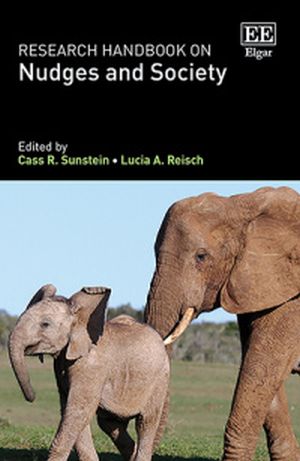
This timely Handbook offers a comprehensive examination of the growing field of nudging and its impact on society. The editors, Cass R. Sunstein and Lucia A. Reisch provide readers with a detailed exploration of the theoretical and empirical work on nudging, as well as an understanding of current and likely future developments in the field.
Divided into six key thematic parts, the Handbook covers everything from the foundations of nudging to its use in organizations. Top international scholars approach the subject from multiple disciplines and perspectives, examining current debates in the field, including the relationship between nudges and freedom; nudges, behavioral biases, and noise; the fundamental role of default rules and social norms; and how nudging can enhance human welfare. Health, safety, poverty, employment, the environment (including climate change), economic growth, health, safety, and civil rights are among the subjects covered. The Handbook concludes with a detailed look at contested ideas and real-world policies, such as ethics and the policies of Covid-19, as well as providing commentary on misconceptions about nudging.
This Handbook is an essential resource for scholars and students in the fields of behavioural economics, public policy, law, public administration, public health, food policy, and sustainable development policy. The state-of-the-art practical insights into nudging, as well as accessible style, also makes this an invigorating read for practitioners.